Sponsored Content
By Jennifer Moonsong
Glasgow News 1
Across the state and nation rural communities are recognizing June Dairy Month. In Kentucky Barren County holds the prestigious ranking of No. 1 in dairy farming statewide, and has for many years. It is the result of an intricate balance between tradition and change.
Barren County’s Agricultural Extension agent, Chris Schalk, is not a native of Barren County, but he has lived and worked here for 31 years. He began his career here in July of 1993 and already had extensive experience in dairy farming, and farm life. Over the past three decades he’s had a bird’s eye view of dairy farming in Barren County.
“When I got here in 1993, the county had 275 dairies. Now we have 20, but we milk more cows today than we did back then,” Schalk said.
Hearing statistics such as that might make one believe dairy farming has gone to big companies, but it hasn’t.
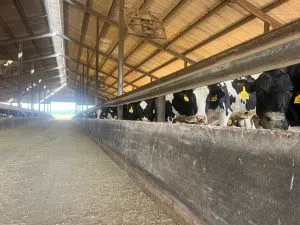
There are 20 dairies remaining in No. 1 ranked Barren County, and all of them are family owned. These healthy and hearty cows live at the Wiley Dairy.
“Every dairy in Barren County is a family operation. These are family-owned farms, and it is great that it is still that way. It is a misconception that if a farm gets big it is no longer a family farm. That’s not a function of family, it is a function of the economy,” Schalk said. “The 275 farms used to milk 30 or 40 cows a day. Today, the 20 farms milk 200 to a 1,000 cows a day.”
For some dairy farmers the success stems from embracing technology. For others it means embracing tradition. For father-son dairy farmers Steve and Calvin Wiley, third and fourth generation dairy farmers working on family land in southeastern Barren County, it’s about keeping tradition alive through changing times.
“This is a traditional dairy,” Calvin said.
“I was six years old when Dad stopped dairy farming. I started in 1993,” said Steve. His father, Harley Wiley worked in various forms of farming through the years including tobacco and pigs. Steve chose dairy farming because it was steady work, outside in nature and it helped him avoid working in a factory as many of his contemporaries did.
“I like being able to do my own thing, and having a piece of ground to farm that was my grandfather’s,” Steve said. Today, about 200 cows are milked twice daily to produce 75 pounds of milk each day on the Wiley farm. The process is three to four hours long for each milking, and starts in the wee hours of the morning. Together, Steve and Calvin plant and harvest the majority of what the cows eat. This helps offset costs and make the dairy viable.
“One bag of corn costs almost three hundred dollars, and one buggy of fertilizer is $4,500, but we are able to grow approximately 80 percent of our feed in corn silage and hay. You can’t make it dairy farming if you had to buy 100 percent of what they eat,” Calvin said.
Calvin, who grew up milking cows, driving tractors and being part of the dairy along with his sister Millie, enjoys farming as a career path. He works full time in planting and harvest season, and because of the help of a farm hand and a couple parlor workers, is able to travel and pursue his ventures in aviation between planting and throughout the winter.
“I love the farm, I love the farm life. Being the fourth generation here, I want to continue farming the land, not necessarily milk farming, but farming,” Calvin said. “I love to travel and have done a lot of that, so it’s been the best of both worlds.”
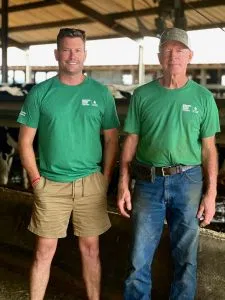
Father and son Steve and Calvin Wiley are third and fourth generation dairy farmers operating their family dairy in the hamlet of Nobob in southeastern Barren County.
The majority of Barren County dairies are traditional operations, much like that of the Wileys. However, some operations are utilizing technologies and the addition of agro-tourism to expand their dairy farms.
“Two of the 20 dairies are using robotic milkers, one is the Mattingly family of Kenny’s Farmhouse Cheese and they are more of an agro-tourism venture. Lots of dairy cows now have electronic trackers, too, that monitor their health,” Schalk said.
Schalk said the agro-tourism aspect of farming is growing more popular in Kentucky and other agricultural states is the result of the allure of farm life to the outside world.
“Last year a couple from St. Louis took a week-long vacation to stay there for a week and see and learn the processes of the farm. For many that wouldn’t be a vacation, but for people who are not privileged to grow up around agriculture, it is. Some people pass farms down and stay on the farm, but many farms have diminished. Someone might seek an experience like that because they remember visiting their grandma’s farm each summer, and they want that feeling to return,” Schalk said.
As alluring as agricultural life might be looking to the past or seeking out a new experience, even with constantly advancing technologies, the reality of life on a dairy farm is steeped in hard work, endurance, and a labor-of-love attitude that must endure through changing seasons and changing climates, both in nature and in economic terms.
“I put myself through college at UK milking cows. A few years away from it, it is easy to forget how hard it is to wake up at four in the morning, in the cold, in the dark and go to work. It is physical work, and it is laborious. Dairy farmers spend a lot of time alone, in the dark, standing on concrete. It is dark when they start the day, and in the winter it is dark when they end the day,” Schalk said.
Some might wonder, with those factors considered, how dairy farms exist.
“For some it is all they know, but for most it is more than that. It is about simplicity in a very complex world. It is definitely not financially motivated. It is rooted in a belief that the quality of life is more important than the quantity of life. They love what they do,” he said.
The result of that love is reflected in statistics.
According to the USDA National Agricultural Statistics Service (NASS) 38 million dollars worth of milk is produced in Barren County annually. That is about 12 million gallons of milk each year.
The second largest dairy in the state, Coral Hill Dairy, is located in Barren County.
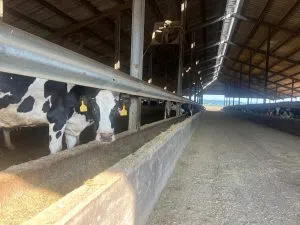
The Wiley Dairy is located on farmland that has been in the family for generations.
Aside from being the No. 1 ranked dairy county in Kentucky, the county and region are so respected in the industry that people from across the nation send heifers to Kentucky dairies to be raised.
“It is a facet we don’t talk about because it doesn’t show up statistically, but people from all over the United States send heifers to Kentucky because we grow good grass and corn, and there are thousands of heifers being raised here as part of the dairy referral industry,” Schalk said.
Looking back, the legacy of dairy in Barren County is clear. Looking to the future, much is still unfolding in the industry. One constant factor throughout the years has been uncertainty.
“We don’t have any control over the price of milk, sometimes you just have to weather a bad season,” Steve said.
According to the USDA, 2022 was a good year for dairy farmers, but 2023 was less of a sure thing. The fruits of 2024’s labor are yet to be determined, but the work doesn’t stop.
Also, no matter what comes along technologically, it cannot replace tradition or the human aspect of life on a dairy farm, or the connectivity to family. Every member of the family has played some role in farm life, including Steve’s wife Stacy who worked as a teacher, but also prepared meals for farm hands during harvest season when work takes place from dawn ’til dusk. And although Millie no longer lives on the family farm, she has continued the farming tradition with her husband at their farm in Alvaton.
At 65, Steve says he won’t be part of the dairy forever, but knows what the most rewarding aspect of his more than three decade endeavor has been. For the Wileys it has been about family.
“Working with your family really means a lot,” Steve said, and that is what tradition is all about.
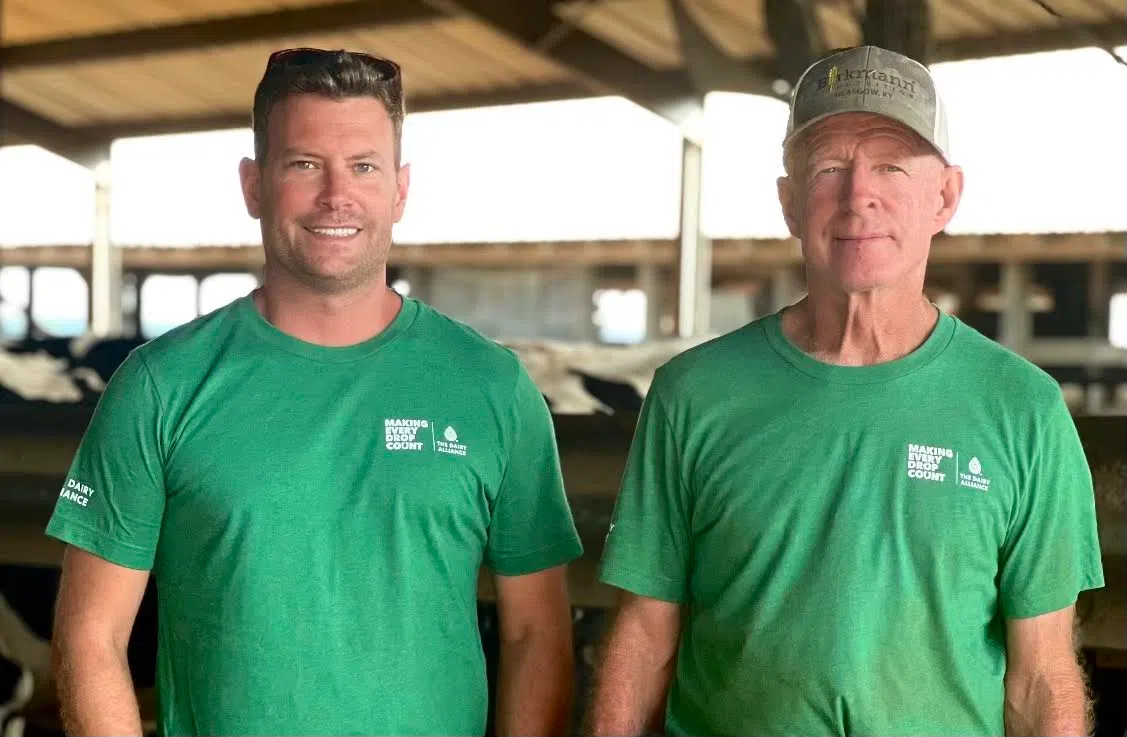
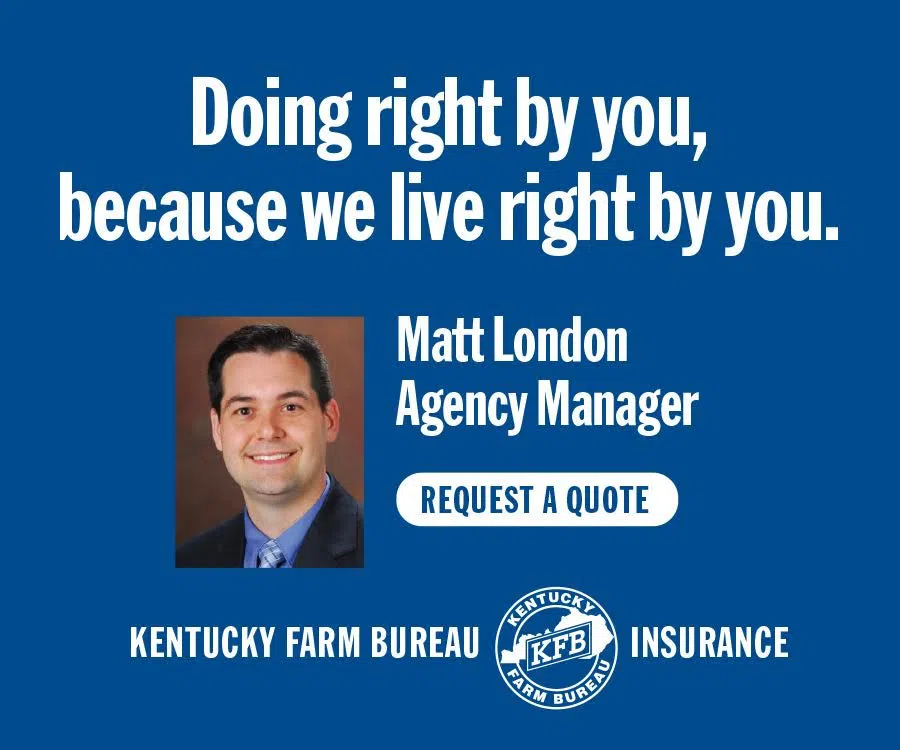
Comments